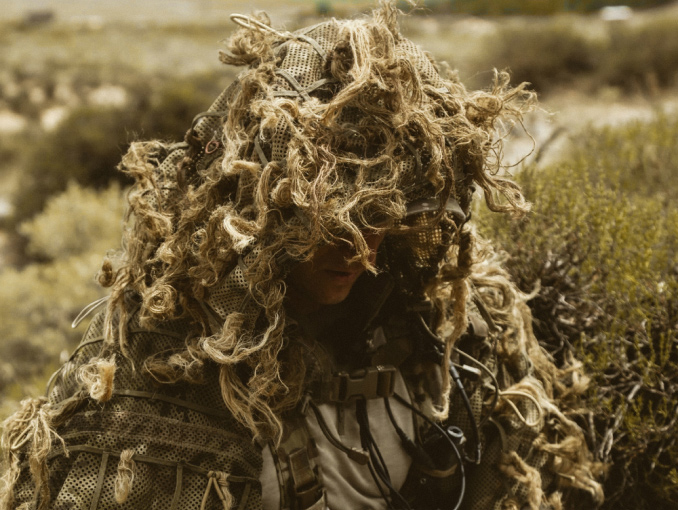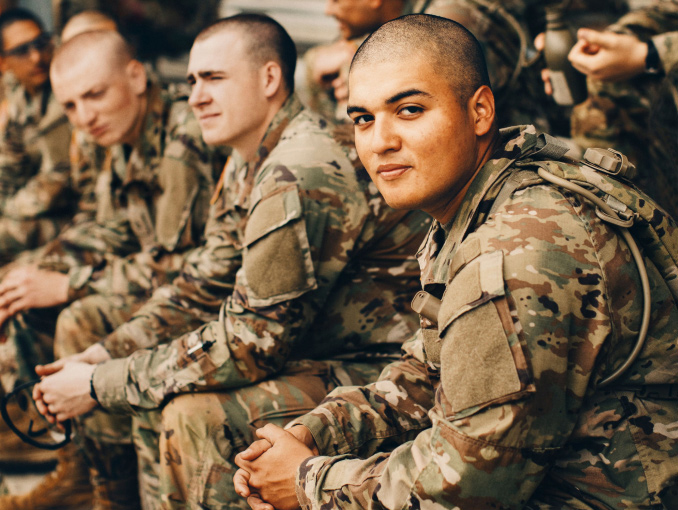Prepare yourself.
Start with the six-week Special Forces Preparation Course that focuses on fundamentals like physical fitness and land navigation.
As a Green Beret, you’ll be an expert in guerrilla warfare and use unconventional tactics to take on missions abroad.

Join a
Join a
legendary
legendary
force.
force.
When you’re part of the elite Special Operations Forces, you work in a small team with very focused skills and access to the most advanced technology, weapons, and gear.
Special Forces Soldiers are among the elite of the military and conduct missions with a focus on surveillance and developing defense capabilities.

Distinguish between civilians and enemy combatants while assisting with the stabilization, defense, and training of developing countries facing insurgent threats.
Seize, capture, recover, or destroy enemy material, or utilize quick strikes to recover personnel.
Conduct surveillance in hostile, denied, or diplomatically- or politically-sensitive environments to collect or verify information of strategic significance.
Enable a resistance movement or insurgency to coerce a government or operate alongside an underground force in a denied area.
Train and equip foreign allied military forces to defend against insurgency, subversion, terrorism, and other security threats.
Break
Break
through
through
barriers.
barriers.
You’ll go through more intense training to become a Green Beret, but you’ll gain more initiative, maturity, self-reliance, and resourcefulness to overcome challenges.
Start with the six-week Special Forces Preparation Course that focuses on fundamentals like physical fitness and land navigation.
Follow up with the Special Forces Assessment and Selection—a 24-day test of physical and mental stamina.
Finish by learning a new language in the 53-week Special Forces Qualification Course which also includes Survival, Evasion, Resistance, and Escape (SERE) exercises, Advanced Special Operations Techniques (ASOT), and a staged invasion of the fictional country of Pineland.
Earn the right to wear the Green Beret and the Special Forces Tab after overcoming intense training and challenges to graduate as a Special Forces Soldier.
If you’re interested in Special Forces and not yet in the Army, you’ll apply through MOS 18X, which is the official title of Special Forces. You’ll also need to meet specific requirements to be considered.

While citizenship is a requirement for passing a secret security clearance, Lawful Permanent Residents can begin training for 18X right away. If you've had a valid Green Card (officially known as an I-551 Permanent Resident Card) for at least six months, you can apply for expedited naturalization and candidacy for the Special Forces through MOS 18X. Work with a recruiter to get started.
Depending on if you’re an enlisted Soldier or an Army Officer, there are different requirements you’ll need to meet to transfer into Special Forces.
Current Soldiers
Current Officers
Be between 20 and 34 years old
Hold a minimum rank of E-3, and within the rank of private first class, specialist, sergeant, or staff sergeant
Have no more than 12 to 14 years in service prior to training, and a minimum of 36 months remaining in service after graduation
Qualify for Airborne School
Reclassify from your current MOS to Special Forces
Be eligible for a secret security clearance

Only 1% join the military, but only 1% of that 1% make it in Special Operations. That’s what drew me—I wanted to be the best of the best.– Special Forces Communications Sergeant
Find out more about becoming a Soldier and if a career in the Army is right for you.
Not finding what you need?
Chat with us any time.
Yes. In addition to Basic Combat Training, Soldiers must have completed Advanced Individual Training (AIT) and U.S. Army Airborne School to be eligible to begin Special Forces training.
If you are not ultimately selected to join Special Forces during training, you will be assigned to a unit as a qualified specialist based on Army needs. In most cases, you’ll work in the Army job you performed prior to applying to Special Forces—called Military Occupational Specialty (MOS).
Special Forces Soldiers carry the most advanced equipment in order to complete the most sensitive missions. While the gear and weapons vary based on the mission and team, Special Forces Soldiers use equipment such as: the lightweight all-terrain Ground Mobility Vehicle, the shoulder-fired, gas-operated MK17 SCAR select fire modular weapon system with a free-floating barrel, the advanced ram air parachute specially designed for severe environmental conditions, night vision technology, the Re-Breather underwater breathing device to navigate rivers and streams unnoticed, the M-4 Carbine rifle, and the Nett Warrior situational awareness system for use during combat operations.
Assigned languages include French, Indonesian-Bahasa, Spanish, Arabic, Chinese-Mandarin, Korean, Persian-Farsi, Russian, Tagalog, Thai, Levantine, and Arabic (Egyptian).
Special Forces Soldiers receive special duty assignment pay, language pay, parachute pay, and special-skills pay such as military free-fall, combat diver, or demolition pay. Their total benefits package includes more than $50,000 toward education, 30 days of vacation yearly, complete medical and dental care, initial entry and reenlistment bonuses, and more.
The first Special Forces unit was officially established during the 1950s, after several notable operational successes during World War II. However, unconventional warfare, a staple of small-unit operations, has its roots since before the Revolutionary War.
You have no saved jobs.
Take a short quiz or explore more than 200 jobs that might interest you.
Army Career Match